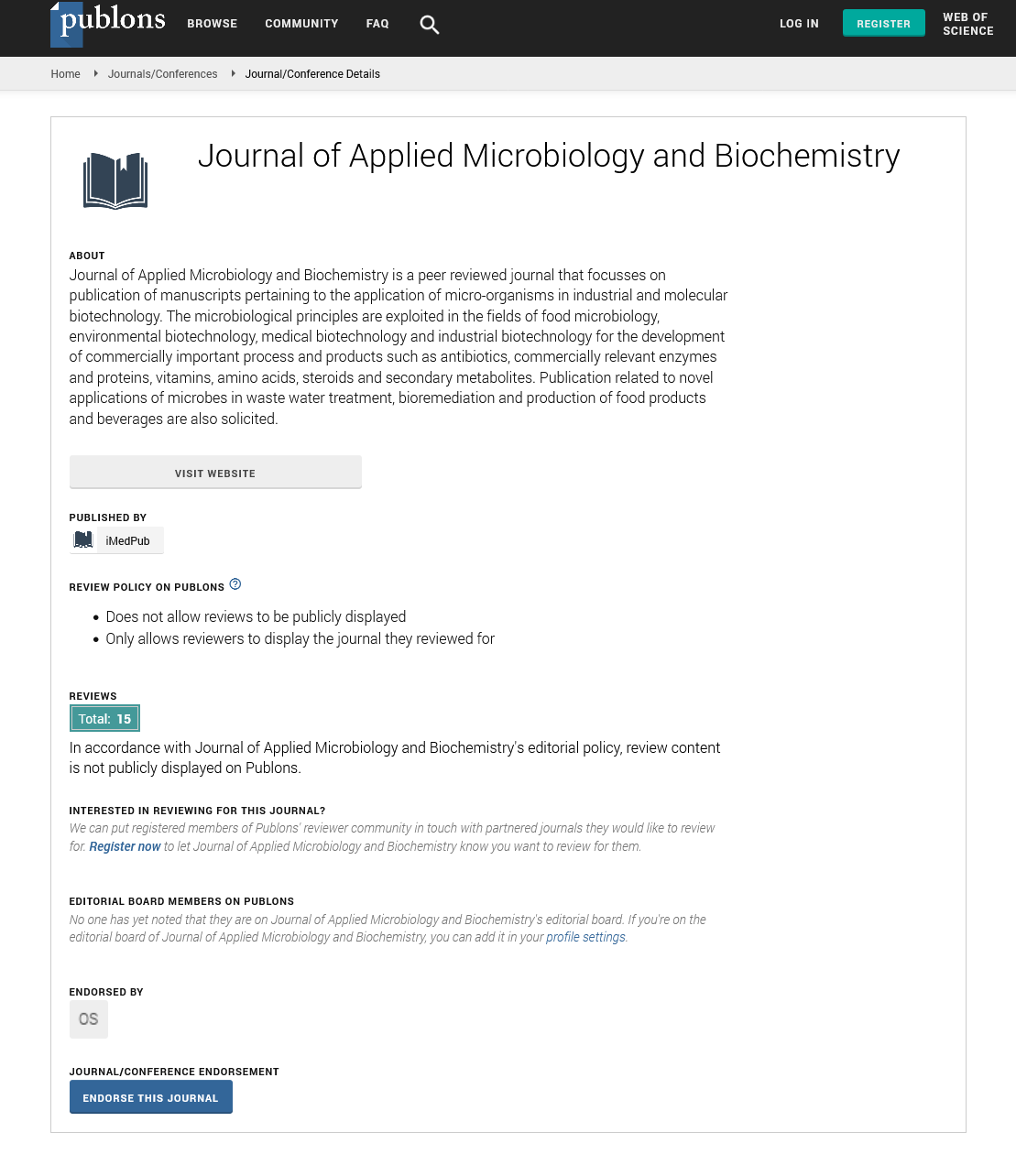ISSN : ISSN: 2576-1412
Journal of Applied Microbiology and Biochemistry
Meta-Analysis on efficacy and safety of DI-3-n-butylphthalide as adjunctive therapy for dementia
7th International Congress on Biochemistry and Molecular Biology
April 28 - 29, 2023 | London, UK
Xue-Ting Liu, Xiu-Chen, Na-Zhao, Fan-Geng, Meng-Meng Zhu, Qing-Guo Ren
Southeast University, China
ScientificTracks Abstracts: JAMB
Abstract
Our previous study has demonstrated that DI-3-n-Butylphthalide (NBP) meliorates cognitive impairments and selectively attenuates phosphorylated tau accumulation by inhibiting neuroinflammation in animal experiments. And, neuroinflammation plays a crucial role in the development of dementia. NBP as a brain-protective drug has shown a multitarget neuroprotective function and used for the adjunctive treatment of vascular dementia. However, the clinical effect of butylphthalide as an adjuvant treatment has not been comprehensively evaluated. Therefore, we evaluated the clinical efficacy and safety of BNP in the treatment of cognitive dysfunction, such as vascular dementia, through meta-analysis. Methods: In this systematic review, we searched 8 databases (Cochrane Library, Embase, PubMed, Sino-Med, Web of Science, China National Knowledge Infrastructure (CNKI), China Science and Technology Journal Database (VIP), and WanFang data) to obtain qualified randomized controlled trials (RCTs) from their inception to December 2022. And the required data of included studies will be collected. Cochrane risk of bias assessment tool was used to evaluate the quality of studies. Data analysis was performed using ReviewManager 5.4.1. Subgroup analysis and sensitivity analysis will also be performed. Results: Metaanalysis results showed that compared with the control group, the MMSE score and ALD score of BNP had statistically significant differences, and there was no statistically significant difference in the occurrence of adverse reactions. All studies had no serious adverse reactions. Conclusion: BNP can improve the scores of MMSE and ADL in patients with vascular dementia, and has good security. Recent Publications 1. Chen X, He JL, Liu XT, et al. DI-3-n-butylphthalide mitigates stress-induced cognitive deficits in mice through inhibition of NLRP3-Mediated neuroinflammation. Neurobiol Stress 2022;20:100486. 2. Arranz AM, De Strooper B. The role of astroglia in Alzheimer's disease: pathophysiology and clinical implications. Lancet Neurol 2019;18:406-414. 3. Solé-Guardia G, Custers E, de Lange A, et al. Association between hypertension and neurovascular inflammation in both normal-appearing white matter and white matter hyperintensities. Acta Neuropathol Commun 2023;11:2. 4. Fan X, Shen W, Wang L, Zhang Y. Efficacy and Safety of DL-3-n-Butylphthalide in the Treatment of Poststroke Cognitive Impairment: A Systematic Review and Meta-Analysis. Front Pharmacol 2021;12:810297. 5. He Z, Zhou Y, Lin L, et al. Dl-3-n-butylphthalide attenuates acute inflammatory activation in rats with spinal cord injury by inhibiting microglial TLR4/NF-κB signalling. J Cell Mol Med 2017;21:3010-3022.
Biography
Xue-Ting Liu is in Department of Neurology, Affiliated Zhong Da Hospital, School of Medicine, Southeast University, China. He has published more than 25 papers in reputed journals and has been serving as an editorial board member of repute. His research interest are Chronic sleep deprivation; Cognitive impairment; Intestinal dysbiosis; Intestinal/blood–brain barrier; Microbiotagut- brain axis; NLRP3 inflammasome.
Google Scholar citation report
Citations : 342
Journal of Applied Microbiology and Biochemistry received 342 citations as per Google Scholar report
Journal of Applied Microbiology and Biochemistry peer review process verified at publons
Abstracted/Indexed in
- Google Scholar
- China National Knowledge Infrastructure (CNKI)
- Cosmos IF
- Directory of Research Journal Indexing (DRJI)
- Publons
- Secret Search Engine Labs
Open Access Journals
- Aquaculture & Veterinary Science
- Chemistry & Chemical Sciences
- Clinical Sciences
- Engineering
- General Science
- Genetics & Molecular Biology
- Health Care & Nursing
- Immunology & Microbiology
- Materials Science
- Mathematics & Physics
- Medical Sciences
- Neurology & Psychiatry
- Oncology & Cancer Science
- Pharmaceutical Sciences
